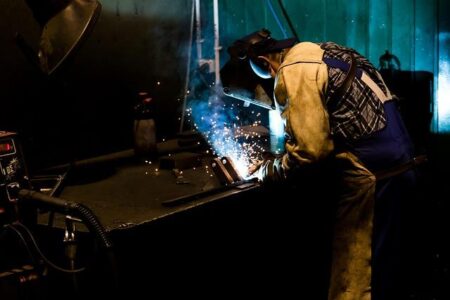General Motors is shifting production of the Buick Envision SUV from China to the U.S., ramping up domestic manufacturing to meet the rising demand from American drivers
Browsing: manufacturing
India’s infrastructure output skyrocketed to a four-month high in December, driven by remarkable boosts in electricity, cement, and steel production. This dynamic upswing not only caps off 2023 on a high note but also fuels optimism for a robust economic recovery, Reuters reports
A sewing mistake in China sparked an unexpected opportunity, turning a simple error into a thriving business success story. This OpEd in Eurasia Review uncovers how innovation often emerges from the most surprising challenges
Chinese private equity powerhouse FountainVest has won Italy’s green light to acquire a stake in EuroGroup Laminations, a key player in the automotive supply chain-signaling a major leap forward in Sino-Italian investment collaboration
German industrial production defied expectations last month with a powerful surge, driven primarily by a remarkable boom in automobile manufacturing, Bloomberg reports. This impressive upswing in the auto sector energized overall factory output, dispelling recent concerns about an economic slowdown
Lamb Weston is closing its Argentina plant as part of an exciting initiative to streamline production and enhance operational efficiency. This bold move supports the company’s global vision to optimize supply chains and expand its market presence around the world
The United Kingdom’s sewing machine needle market is set for dynamic growth, with a promising 3.4% CAGR in value, reveals IndexBox. This upward momentum is driven by soaring demand across the lively textiles and crafts industries
Italian manufacturing contracted in December at its fastest pace since March, Reuters reports. The PMI reveals a sharp decline in new orders, spotlighting ongoing economic challenges and sluggish demand across the sector
Rolls Royce is gearing up to make India its “home market,” unveiling bold plans to expand its jet engine and naval propulsion programmes. This exciting strategy aims to deepen partnerships and turbocharge local manufacturing within India’s fast-evolving defence and aerospace sectors
Canada’s automotive industry is roaring ahead, driving innovation and skyrocketing exports like never before. Recent updates on ised-isde.canada.ca highlight the government’s dedication to boosting competitiveness and leading the charge in groundbreaking green technologies
Japan is gearing up to turbocharge its investment in semiconductor and AI development, with ambitious plans to quadruple its budget. This bold move aims to boost homegrown technology and dramatically reduce reliance on overseas suppliers, officials revealed. The initiative is a key part of Japan’s broader strategy to lead the fierce global tech race and build stronger economic resilience
China’s booming robotics sector is capturing global attention as worries about a potential bubble grow louder. With investments flooding in at breakneck speed and valuations soaring to new heights, many are left wondering if this explosive surge can last-and what it could mean for the future of the industry
Japan has built a rare-earth supply chain entirely independent of China, securing a reliable stream of crucial materials essential for advanced technology and national defense. This daring move directly addresses strategic risks in the face of rising geopolitical tensions
Stellantis’ car production in France is projected to plunge by 11% by 2028, the Financial Times reveals. This significant drop underscores the rapidly changing automotive landscape and the challenges manufacturers face as they transition to electric vehicles, Reuters reports
Airbus has just revealed it’s mere hours away from halting production at its Spanish plants due to ongoing supply chain disruptions. The aviation giant is in a high-stakes race against time to stabilize operations and avoid further delays
Japan’s Rapidus is gearing up to break ground on its second chip manufacturing plant in fiscal year 2027, intensifying its push to boost domestic semiconductor production amid persistent global supply chain challenges, Nippon.com reports
France’s steel production skyrocketed to an 11-month high in October, GMK Center reveals. This remarkable surge signals booming demand and a revitalized industrial sector propelling the nation’s economic revival
Czech steelmakers are urging the government to roll out a support plan like Germany’s, aiming to shield the industry from skyrocketing costs and intense global competition, European Newsroom reports
L’OrĂ©al is turbocharging its production capacity in France to meet the skyrocketing global demand amid the perfume boom. This ambitious expansion is poised to cement the company’s position as a true titan in the luxury fragrance industry
The US is accelerating its efforts to lock in a rare earths supply deal with China, fueled by growing concerns over potential disruptions that could threaten key technology and defense industries-highlighting an escalating struggle for dominance over these essential resources




















